Academic Staff
Academic Staff
Core academic staff at the Centre of Latin American Studies
Dr Pedro Mendes Loureiro (CLAS) Director of the Centre of Latin American Studies / CLAS PhD Director | Dr Graham Denyer Willis (CLAS / Development) University Associate Professor |
| Dr Carlos Fonseca (MMLL) | Dr Adrian Lerner Patron (POLIS) CLAS MPhil Director |
Other university staff teaching regularly at CLAS
(also see Associate Staff)
| Prof Maite Conde (Spanish & Portuguese) | Dr Natalia Buitron (Social Athropology) |
| Dr Geoffrey Maguire (Gonville & Caius College) | Dr Hank Gonzalez (History) |
| Dr Stephanie Rohner (MMLL) (Spanish & Portuguese) | Prof Geoffrey Kantaris (Spanish & Portuguese) |
| Prof Mónica Moreno Figueroa (Sociology) | Prof Sian Lazar (Social Anthropology) |
| Dr Françoise Barbira Freedman (CLAS) (Social Anthropology) | Prof Rory O'Bryen (Spanish & Portuguese) |
| Dr Jimena Lobo Guerrero Arenas (Museum of Archaeology and Anthropology / Archaeology) | Dr Liesbeth François (MMLL) |
| Prof Joanna Page (MMLL) currently on secondment as Director of CRASSH | Dr Rachell Sanchez-Rivera (Sociology) |
Affiliated Lecturers
(also see Associate Staff)
In addition to the full-time staff members listed above, CLAS benefits from the teaching provided by part-time lecturers who are formally affiliated to the Department of Politics and International Studies, its ‘parent’ Department.
| Dr Grace Livingstone (POLIS) |
Pedro Mendes Loureiro
Director of the Centre of Latin American Studies / CLAS PhD Director
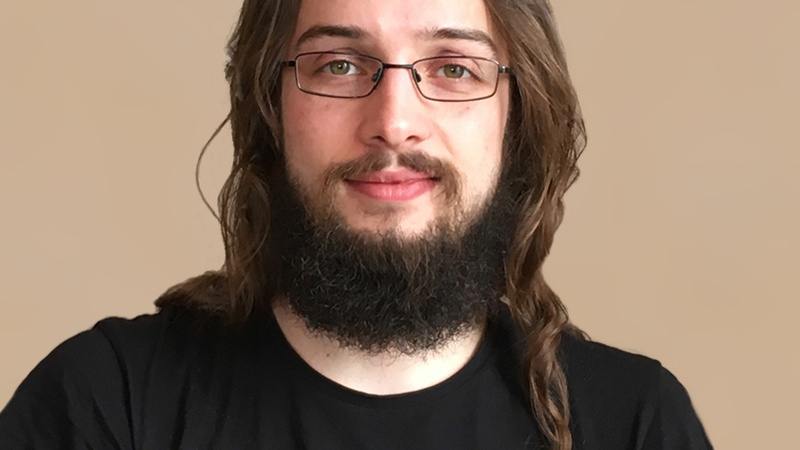
Pedro Mendes Loureiro is the Director of the Centre of Latin American Studies (CLAS) and Associate Professor at the Department of Politics and International Studies (POLIS). Primarily a political economist, at the heart of his work is a commitment to interdisciplinarity and methodological pluralism, with interests ranging wide across the social sciences. Substantively, Pedro is a scholar of inequality and of development strategies, with the ultimate goal of helping combat social inequalities in all their forms and wherever they might arise. He has researched and published on the political economy of development strategies in Latin America; on the changing dynamics of race, class and gender inequality; on social policies and their politics; on inequality measurement; and on the history of Latin American social thought. Pedro also collaborates with development agencies and NGOs in devising frameworks and policies to tackle multidimensional inequalities.
Pedro's current research focusses on the expansion of the prison system and the political economy of incarceration in Brazil. It is funded by the Leverhulme Trust and the Harry Frank Guggenheim Foundation.
Until September 2023, Pedro was a Fellow of Fitzwilliam College, where he directed studies for the Human, Social and Political Sciences (HSPS) and History and Politics Triposes. He supervises for several UG papers (POL1, POL4, POL5/19, POL9, Dissertations).
Pedro is currently the convener for the Capitalism and Society in Latin America & Development and Policy in Latin America modules in the CLAS MPhil course.
Carlos Fonseca

Carlos Fonseca is a writer and academic. His teaching, writing and research focuses on modern Latin American literature, art and culture, with particular emphasis on concepts of history, nature and politics. He is interested in the intersection between philosophy, literature and art history. He holds a PhD from Princeton University. His research interests include the Caribbean and Central American Literature, Theories of the Postcolonial Imagination, the History of the Avant-Garde, Overlaps of Art History, Philosophy and Literary History, Theories of the Novel and the Historical Archive, and Eco-humanities, among others.
Carlos is currently the convener for the The Politics of Nature in Latin American Culture & Present Pasts, Pasts Present: Reflections on Literature and History in Latin American writing modules in the CLAS MPhil course.
Adrián Lerner Patrón
Centre of Latin American Studies MPhil Director
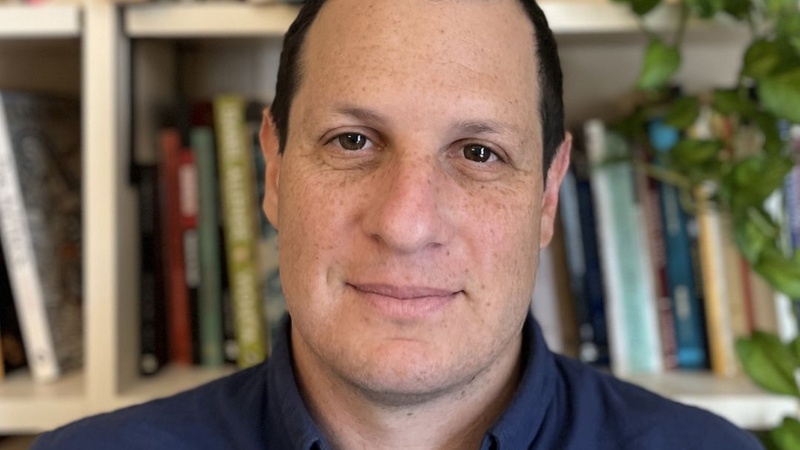
Adrián Lerner Patron is a Research Associate and Lecturer in Global History at the Free University of Berlin. He is a historian of cities, environmental history, the history of science, and Latin America. His current monograph, Jungle Cities: The Urbanization of Amazonia explores the parallel and divergent histories of Manaus (Brazil) and Iquitos (Peru), the crucial urban nodes of the Amazon rainforest. He is also working on two co-edited volumes: one about the links between capitalism and the formation of the ecological imagination in Peru (with Javier Puente, Smith College), and one about Peru from the perspective of global history (with Alberto Vergara, Universidad del Pacífico). He has also published widely on the histories of politics, international relations, gender, and public policy in Latin America.
Born and raised in Lima, Peru, Adrián obtained his BA and Licenciatura at the Pontificia Universidad Católica del Perú. He then moved to the United States, where he earned his MA, MPhil, and PhD in History from Yale University, where he was also a member of the inaugural cohort of the Interdisciplinary Concentration in the Humanities, focused on “The Technologies of Knowledge.” Before joining the Free University of Berlin, he was the Princeton Mellon Postdoctoral Research Fellow in Urbanism and the Environment at Princeton University.
Adrian is currently the convener for the Core Course module in the CLAS MPhil course.
Graham Denyer Willis
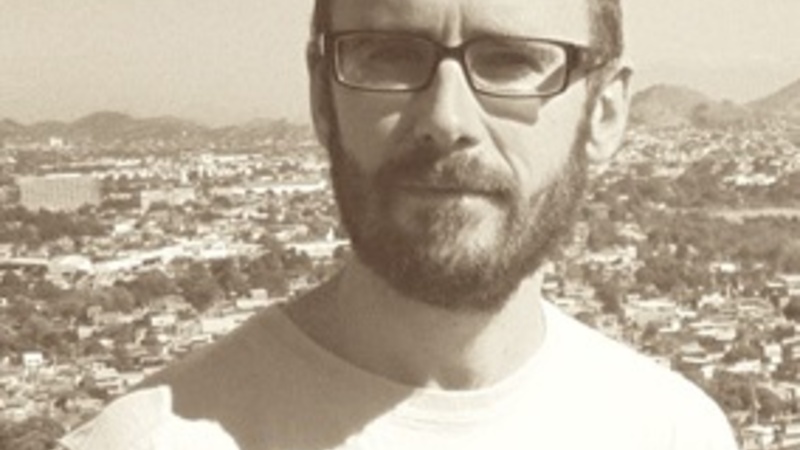
Graham Denyer Willis is a University Professor at the Centre of Latin American Studies and the Centre of Development Studies, and Director of Studies in Geography at Queens’ College. His work brings together debates about public security, state-society relations and urbanization to raise and address new questions and understandings of development, security and governance in cities of the Global South. His first book, The Killing Consensus: Police, Organized Crime and the Regulation of Life and Death in Urban Brazil (California 2015) is based on research carried out alongside homicide and other detectives in São Paulo from 2009-2012. He has also written about cloned cars, why homicide rates aren't all that helpful and the ways that Brazilian cemeteries materially mingle violence and terror, past and present.
Other University staff teaching regularly at CLAS
The academic staff below teach regularly for the Centre whilst being formally attached to other University departments.
Geoffrey Maguire

Geoffrey Maguireis a Fellow in Spanish at Gonville & Caius College and a College Lecturer at Emmanuel College. He specialises in contemporary Latin American film, literature and visual art, with particular interests in cultural memory, queer representation, and sexuality and gender.
Geoffrey is the author of The Politics of Postmemory: Violence and Victimhood in Contemporary Argentine Culture (2017) and, with Rachel Randall, New Visions of Adolescence in Contemporary Latin American Cinema (2018). His current monograph explores the filmic representation of queer sexualities through theories of temporality and embodiment, and is entitled Bodies of Water: Queer Trends in Contemporary Latin American Cinema. More broadly, Geoffrey is interested in the intersections of politics and culture in contemporary Latin America, as well as in theoretical debates surrounding performance, masculinities and post-conflict cultural memory, particularly the Falklands/Malvinas conflict.
Geoffrey teaches and lectures broadly on undergraduate papers for the Section of Spanish and Portuguese, as well as on the MPhil courses in MMLL and the Centre of Latin American Studies. He also supervises Year Abroad Projects, Optional Dissertations, MPhil essays and theses on a broad range of topics in Hispanic and Lusophone cinema, literature and visual art.
Geoffrey is currently the PhD Director for the Centre of Latin American Studies, and he welcomes questions from prospective doctoral students.
Natalia Buitron
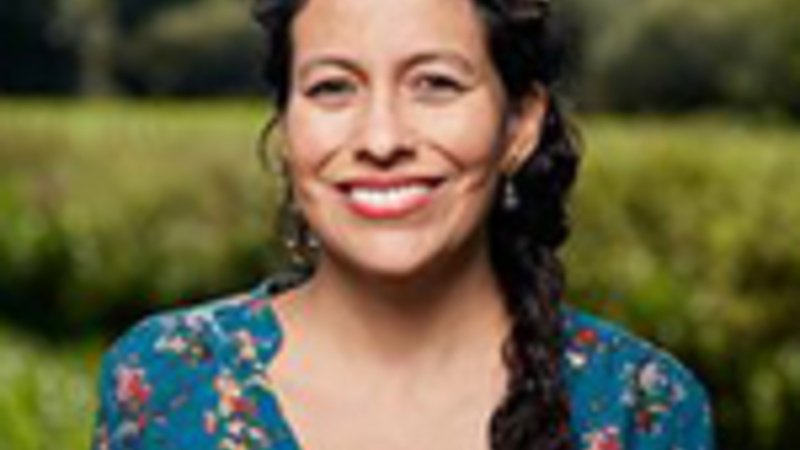
Natalia Buitron is a socio-political anthropologist exploring institutional creativity, political subjectivity, and indigeneity. She has completed long-term fieldwork with the Shuar of Ecuadorian Amazonia and is interested in Latin America. The main objective of her research is to understand how humans create institutions in a way that takes into account indigenous political projects. This work centres on exploring how a variety of indigenous social movements reinvent Latin American multicultural governance from the bottom up.
Maite Conde

Maite Conde is University Professor of Brazilian Studies and Visual Culture in the Department of Spanish and Portuguese. She specialises in Brazilian literature, cinema and cultural theory. She is the author of Consuming Visions. Cinema, Writing and Modernity in Brazil (Virginia University Press, 2012), for which she was received the Andrew Mellon/MLA award and Foundational Films. Early Cinema and Modernity in Brazil (University of California Press, 2018) for which she received the Antonio Candido Prize (honourable Mention) for the best book in the humanities by the Brazil Section of the Latin American Studies Association and the Richard Wall Memorial Prize (finalist) for the best book on Film or Theatre by the Theatre Library Association. She also edited, translated and wrote the introduction to Between Conformity and Resistance. Essays on Politics, Culture and the State (Palgrave Macmillan, 2011), a collection of key essays by renowned Brazilian philosopher Marilena Chauí, and co-edited a collection of essays by Brazilian film scholar Paulo Emílio Salles Gomes, translated for the first time into English, titled Paulo Emílio Salles Gomes: On Brazil and Global Cinema (University of Wales Press, 2018).
Maite is currently the convener for The Politics of Representation in Latin American Visual Culture module in the CLAS MPhil course.
Hank Gonzalez
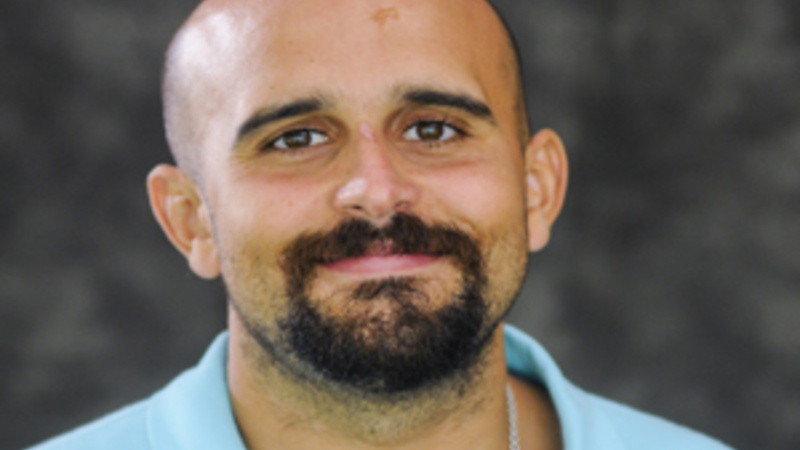
Hank Gonzalez is a University Associate Professor in the History Faculty specializing in the Caribbean. His book 'Maroon Nation: A History of Revolutionary Haiti' comes out in 2019. His initial research deals with the early years of Haitian independence. He is currently writing a book on foreign influence in the twentieth-century Haitian art business, and pursuing a marine archeology project in Haiti.
Hank is currently the convener for The Caribbean in World History module in the CLAS MPhil course.
Geoffrey Kantaris
Former Director of the Centre of Latin American Studies (2005-10)

Geoffrey Kantaris is a Professor in the Department of Spanish and Portuguese and a former Director of the Centre (2005-10). He specializes in Latin American urban culture, in particular contemporary cinema. He is preparing a book provisionally entitled Contemporary Latin American Cinema: The Urban Paradigm and has published a wide range of articles in this area. He has also worked on Southern Cone literature. He has published The Subversive Psyche: Contemporary Women's Narrative from Argentina and Uruguay (Oxford University Press, 1996) and Latin American Popular Culture: Politics, Media, Affect (London: Tamesis, 2013).
Sian Lazar
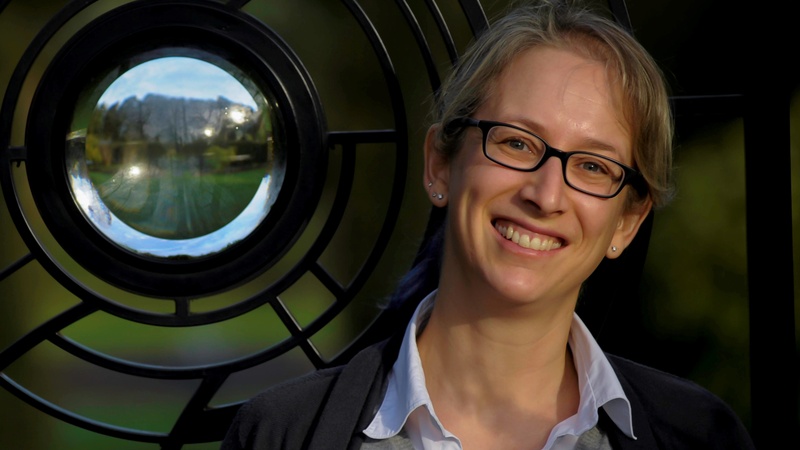
Sian Lazaris a Professor in the Department of Social Anthropology. Her research interests include social movements, especially labour movements; ethnography of the state, democracy and citizenship; gender; the city; and the anthropology of politics and development, with a particular focus on Bolivia and Argentina. Her research is focussed on collective politics in Buenos Aires, Argentina, and El Alto, Bolivia. She is the author of various articles on these topics, as well as El Alto, Rebel City: Self and Citizenship in Andean Bolivia (Duke University Press, 2008), and The Social Life of Politics: Ethics, Kinship and Union Activism in Argentina (Stanford University Press, 2017). The first has been published in Spanish translation in Bolivia by Plural (2013), and the second is forthcoming in Argentina with Siglo xxi in mid-2019. She has also co-edited journal special issues on the Bolivian uprisings of 2003, the anthropology of citizenship, and precarious labour, and is the editor of Where are the Unions? Workers and Social Movements in Latin America, the Middle East, and Europe (Zed books, 2017), and The Anthropology of Citizenship. A Reader (Wiley-Blackwell 2013). She is one of the joint editors of the Journal of Latin American Studies.
Mónica Moreno Figueroa
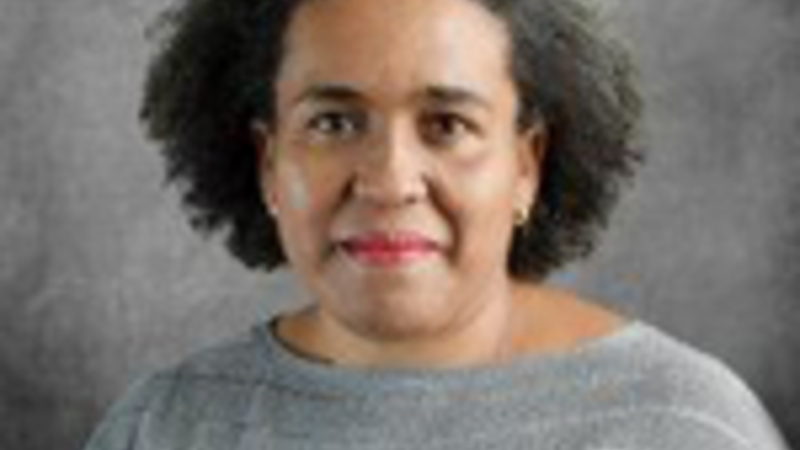
Mónica Moreno Figueroa is University Professor in Sociology at the University of Cambridge and a Fellow at Downing College, Cambridge. Her research has primarily focussed on Mexico and Latin America more broadly. The interest in researching the 'qualities' of the lived experience of racism, has taken her to the study of the everyday, the relevance of emotions, issues around gender, visibility and embodiment as well as exploring the links with anti-racist practice, political activism and collaboration. Currently, she is developing various research strands: a project on Anti-Racism in Latin America, with Prof Peter Wade (Manchester); a project on the gendered experience of racism and racial identification alongside economic trajectories in Mexico's Costa Chica, with Dr Emiko Saldivar (UCSB); and a project on institutional and state racism exploring access to health, water and recognition of rights in the state of Oaxaca, Mexico, with Dr Juan Carlos Martinez (CIESAS).
Rory O’Bryen
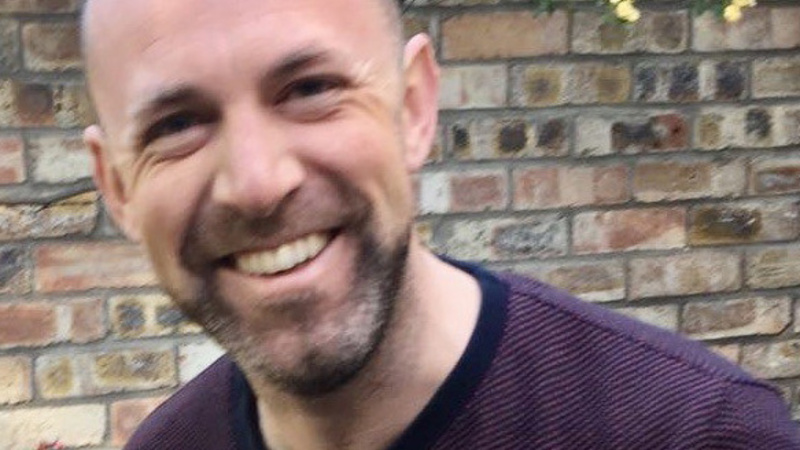
Rory O’Bryen is Associate Professor of Latin American Literature and Culture in the Department of Spanish and Portuguese. He has published Spectres of La Violencia: Literature, Testimony and Cinema in Contemporary Colombian Culture (2008), Latin American Popular Culture: Politics, Media, Affect (2013), Latin American Cultural Studies: A Reader (2015), and Transnational Spanish Studies (2020). His current research explores the representation of the Magdalena River in Colombian culture between 1850 and the present day. It engages with a range of works, including mid-nineteenth-century regional romances, late nineteenth-century Afro-Colombian poetry, the aesthetics and politics of steam in Colombian modernismo, representations of leprosy in early twentieth-century literature, music and silent film, the ‘novela de la Violencia’ of the 1950s, and late twentieth-century engagements with narcotráfico. In doing so it uses the river as a conduit into the fragile interplay between nation-formation and global political and economic processes.
Joanna Page
Former Director of the Centre of Latin American Studies (2014-18)

Joanna Page is a Professor of Latin American Studies. Her research focuses on the relationship between science and culture in Latin America, and she has worked on a range of different media, including literature, film, graphic fiction and visual arts, particularly from Argentina, Chile, and Brazil. She is also interested in questions of memory, modernity, capitalism, posthumanism, new materialism, decoloniality and environmental thought in Latin America. She is the author of six monographs: Crisis and Capitalism in Contemporary Argentine Cinema (Duke University Press, 2009), Creativity and Science in Contemporary Argentine Literature (University of Calgary Press, 2014), Science Fiction from Argentina: Technologies of the Text in a Material Multiverse(University of Michigan Press, 2016), Posthumanism and the Graphic Novel in Latin America (with Ed King, UCL Press, 2017), Decolonizing Science in Latin American Art (UCL Press, 2021) and Decolonial Ecologies: The Reinvention of Natural History in Latin American Art (Open Book Publishers, 2023). She has also co-edited two volumes: Visual Synergies: Fiction and Documentary Filmmaking in Latin America (with Miriam Haddu, 2009) and Geopolitics, Culture, and the Scientific Imaginary in Latin America (with María Blanco, 2020). She was the Principal Investigator for the AHRC-funded international research network "Science in Text and Culture in Latin America" (2014-16) and two of her recent research projects have been funded by the British Academy. She is currently the Director of CRASSH, the University’s Centre for Research in the Arts, Social Sciences and Humanities.
Stephanie Rohner
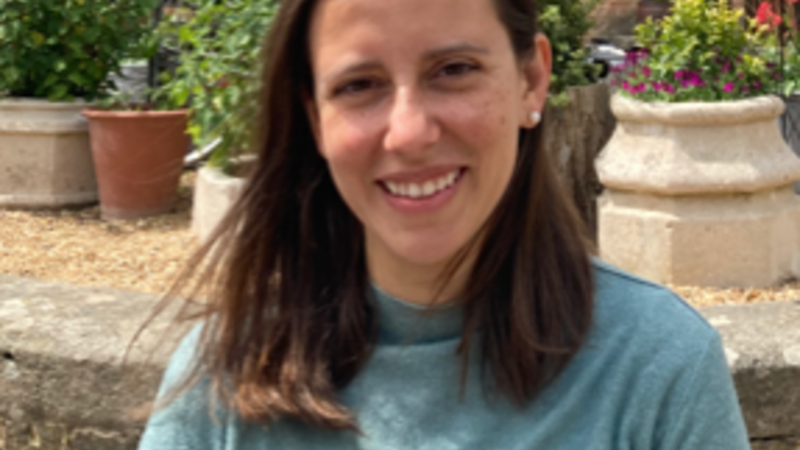
Stephanie Rohner is Assistant Professor of Colonial Latin American Literature and Culture in the Faculty of Modern and Medieval Languages. She holds a PhD in Spanish and Portuguese from Yale University.
Her area of specialization is the literature and culture of the viceroyalties of Peru and New Spain with a particular interest in the transatlantic circulation of indigenous literary, historiographical, and visual discourses. One of the questions that drive her research concerns how modern ideas about the pre-Columbian past in Latin America have been formed. She looks at the eighteenth century as a key moment in which innovative approaches such as the exploration of archaeological sites and the explosion of antiquarian studies, in dialogue with the philosophical and scientific trends of the European Enlightenment, deeply renewed understandings of indigenous histories and material cultures. In her current book project, she focuses on the efforts of the eighteenth-century Mexican Jesuit Francisco Javier Clavigero to compile the pre-Columbian history of Mexico and systematize native epistemologies from his exile in Italy.
Françoise Barbira Freedman

Françoise Barbira Freedman is an Affiliate Lecturer at the Department of Social Anthropology. Her career includes extra-academic experience in maternal and child health education and drug discovery. As a medical anthropologist, she specialises in critically analysing intersections of health, ecology, and cultural resilience underpinning indigeneity in Latin America. Her areas of expertise, based on long periods of fieldwork with Amazonian Kichwa people, are shamanism, plant-human relations, and the interface between Indigenous knowledge and science. Gender is a focus in all her work.
Françoise’s publications cover topics ranging from development and healthcare alternatives in Amazonia to Ayahuasca shamanism, Indigenous concepts of plants and healing, interculturality in midwifery and early education. Her current research project, with Stephen Hugh-Jones, explores the makeup and distribution of Amazonian Indigenous plant knowledge in a critical interdisciplinary perspective that crosses ethnosciences and anthropology.
Françoise is currently the convener for the Indigeneity in Latin America module in the CLAS MPhil course. She welcomes enquiries about this module (fb205@cam.ac.uk).
Jimena Lobo Guerrero Arenas
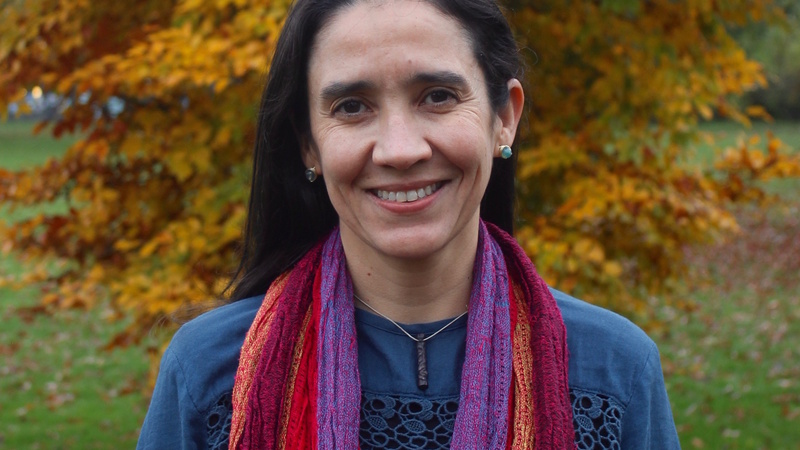
Jimena Lobo Guerrero Arenas is Senior Curator of World Archaeology at the Museum of Archaeology and Anthropology at the University of Cambridge. She has a PhD from the University of Bristol and an interdisciplinary background in Anthropology (BA, Universidad de Los Andes, Colombia) and History (BA and MA, Universidad de Los Andes, Colombia).
Before coming to Cambridge, she was Lecturer in Archaeology at the University of Caldas in Colombia, where she was also Curator of Archaeology at the University Museum Centre.
Her research interests span the history and archaeology of colonialism, indigenous and African forms of resistance, pre-Columbian and colonial metallurgy, ethnoarchaeology, material culture studies, and cultural heritage. Recently, her research has focused on the study of metallurgy in the Americas during the colonial period. Her book "Del texto, contexto y lugar del oro en la Crónica de Indias de Pedro Cieza de León" aimed to investigate the meaning and use of gold as a rhetorical concept in colonial discourse.
Jimena has worked extensively with museum collections and is interested in contributing to decolonization work in museums by actively engaging the voices of indigenous peoples and source communities in the creation of exhibition narratives and learning experiences. She is interested in collection research projects that address issues of provenance, the life of objects, and processes of repatriation and restitution. She was Assistant Archaeologist in the Gold Museum expansion project in Bogotá, Colombia and between 2007 and 2011 she was director of Casa del Alabado-Museum of Pre-Columbian Art in Quito, Ecuador.
Liesbeth François
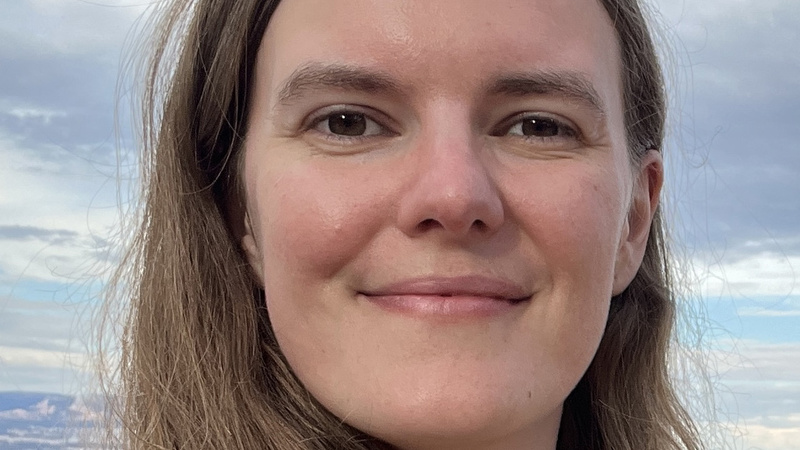
Liesbeth François holds a PhD in Literature, awarded by KU Leuven (University of Leuven, Belgium). Her research and teaching activities centre on contemporary Latin American literature and culture, with a focus on Argentina and Mexico. She worked as a postdoctoral researcher at KU Leuven between 2015 and 2022, with funding from the Research Council KU Leuven and the Research Foundation – Flanders (FWO). She is the author of Andares vacilantes. La caminata en la obra narrativa de Sergio Chejfec (Beatriz Viterbo, 2018) and Subterranean Space in Contemporary Mexico City Literature (Palgrave, 2021). She has published articles on several Latin American authors and co-edited two volumes on, respectively, the everyday and urban space in contemporary literature and culture. Her research interests include urban space and mobility in narrative fiction, imaginaries of the underground, literature and politics, and the figure of youth in contemporary literature and culture.
Rachell Sanchez-Rivera
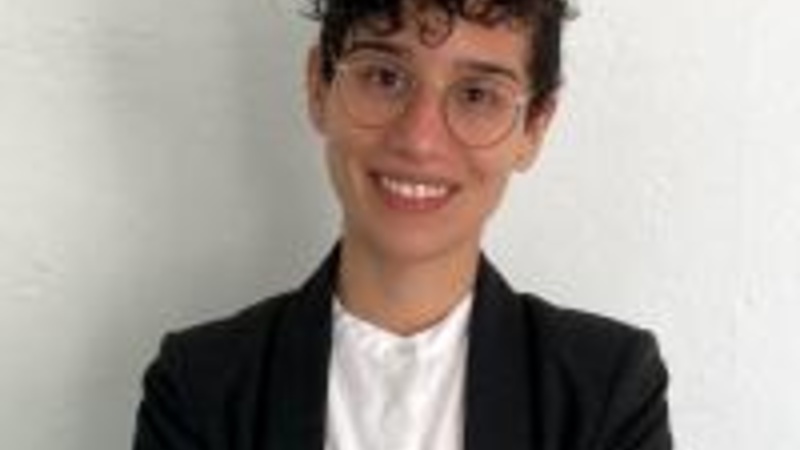
Dr R Sánchez-Rivera has a Ph.D. in the Centre for Latin American Studies at the University of Cambridge. They hold a B.A. in Political Science and History from the University of Puerto Rico, Río Piedras Campus and an M.A. in Regional Studies—Latin America and the Caribbean from Columbia University in the City of New York.
Rachell is currently the convener for Race, racism, and anti-racism in Latin America module in the CLAS MPhil course.
Affiliated Lecturers
Grace Livingstone
Department Affiliated Lecturer
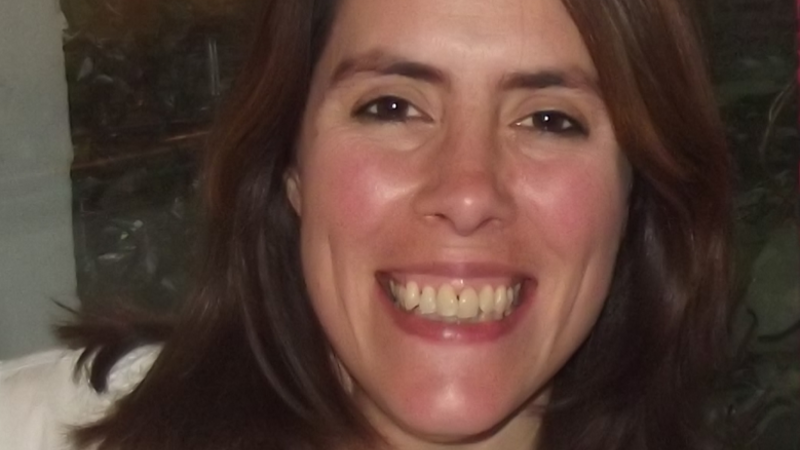
Dr Grace Livingstone is an affiliated lecturer at Centre of Latin American Studies, University of Cambridge.
Her research interests include US and British foreign policy towards Latin America, and the impact private corporations and social movements have on policy-making. She has also worked on drugs policy in Colombia, and Latin America.
She is currently researching British and European investment in green fuels in South America, assessing water and land use, and considering social movement claims that these amount to a form of ‘green colonialism’, entrenching extractive models of production and exchange.
She is the author of Britain and the Dictatorships of Argentina and Chile, 1973-82: Foreign Policy, Corporations and Social Movements (Palgrave Macmillan, 2018); America’s Backyard: The United States and Latin America from the Monroe Doctrine to the War on Terror (Zed Books, 2009); and Inside Colombia: Drugs, Democracy and War (Latin America Bureau/Rutgers University Press, 2003).
She has also contributed a chapter on ‘The United States and the Latin American Right’ to Geraldine Lievesley and Steve Ludlum (eds.), Rightwing Politics in Latin America, (London: Zed Books, 2011) and a chapter on ‘Drugs and Criminal Organisations’ to Pia Riggirozzi and Chris Wylde (eds.), The Handbook of South American Governance, (Routledge, 2017).
She has a PhD from the University of Cambridge, an MA in Latin American Studies from the ILAS, University of London, and a BA in history from Queen Mary, University of London.
She is also a journalist, specializing in Latin American affairs, and has reported for the BBC World Service, The Guardian, the Independent on Sunday and The Observer.
Dr Grace is currently the convener for the Power and Protest: Social Movements and the State in Latin America module in the CLAS MPhil course.
